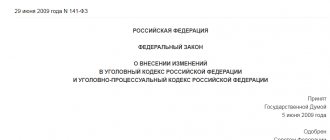ST 63.1 of the Criminal Code of the Russian Federation.
If it is established that the person who entered into a pre-trial cooperation agreement provided false information or concealed from the investigator or prosecutor any other significant circumstances of the commission of a crime, the court imposes a punishment on him in the general manner without applying the provisions of parts two, three and four Article 62 of this Code, relating to the term and amount of punishment, and Article 64 of this Code.
Second commentary to Art. 63.1 of the Criminal Code of the Russian Federation
If it is established that the person who entered into a pre-trial cooperation agreement provided false information or concealed from the investigator or prosecutor any other significant circumstances of the commission of a crime, the court imposes a punishment on him in the general manner without applying the provisions of parts two, three and four of the article. 62 of this Code, concerning the term and amount of punishment, and Article 64 of this Code.
1. The article specifies the consequences of a person’s violation of a pre-trial cooperation agreement. If it fulfills all the terms of the agreement, then when assigning a punishment, the fact of concluding a pre-trial agreement on cooperation serves as the basis for a significant mitigation of the limits of punishment for the person (Part 2, Part 3 and Part 4 of Article 62 of the Criminal Code).
2. If it is established that the person who entered into the pre-trial cooperation agreement violated its terms, namely, false information was provided or any other significant circumstances of the commission of the crime were hidden from the investigator or prosecutor, the court imposes punishment on him in the general manner without applying the provisions the above parts of Art. 62 of the Criminal Code concerning the term and amount of punishment, and Art. 64 of the Criminal Code.
Aggravating circumstances of criminal law
The list of aggravating conditions that are unconditionally taken into account when assigning punishment is given in Article 63 of the Criminal Code of the Russian Federation. There are 17 of them in total, according to the paragraphs of the article.
Circumstances negatively characterizing the perpetrator
1. Clause “a” of Article 63 of the Criminal Code of the Russian Federation - recidivism of crimes . Most people are greatly mistaken in believing that recidivism means committing crimes again. To some extent this is true, but it is not that simple. They speak of recidivism if a person commits an intentional crime, having previously been convicted of it.
When determining recidivism, only intentional crimes are taken into account. Acts with a careless form of guilt, for example, common careless crimes under Art. 264. Criminal Codes of the Russian Federation related to traffic violations that resulted in serious injury or death will not be taken into account.
A relapse can only occur if there is an unexpunged or unexpunged conviction for a previous intentional criminal act.
Convictions for acts cannot be taken into account:
- slight heaviness;
- occurred while a minor;
- for which the perpetrator was given a suspended sentence or the execution of the sentence was suspended, only on the condition that they were not cancelled.
2. Clause “c” of Article 63 of the Criminal Code of the Russian Federation - commission of a crime:
- Group, with the participation of two or more people.
- A group by prior conspiracy, when 2 or more people agreed in advance to commit it together.
- An organized group created specifically for illegal activities.
- As part of a criminal organization or community. They are structured groups of people with a single leadership, united to commit serious, especially serious criminal acts in order to obtain material benefits.
Such aggravating circumstances are highly likely to result in greater harm.
3. Point “d” - a particularly active role in the commission of a crime, which can be evidenced, for example, by the initiative to commit it, perseverance in order to achieve a more significant result;
4. Point “and” - committing a crime with particular cruelty, sadism, mockery, torment of the victim.
This aggravating circumstance is said to occur when excessive suffering is caused to the victim.
- Particular cruelty is evidenced by torture, the infliction of torture on the victim, his loved ones, and relatives.
- Sadism is characterized by receiving pleasure from the torment of the victim, which becomes the target of criminal behavior.
- Bullying - all kinds of humiliation, causing moral suffering to the victim, etc.
- Torment may include, for example, deprivation of sleep and food.
5. Point “k” - committing a crime using:
- weapons, ammunition, explosives, explosive devices simulating them;
- those. funds intentionally made for him;
- drugs, psychotropics, potent, poisonous, radioactive substances,
- medicinal and other drugs.
This aggravating circumstance includes the use of physical as well as mental coercion .
This aggravating circumstance combines generally dangerous means that significantly simplify the process of achieving a result for the criminal. They are dangerous for the victim and for others, and also indicate an extremely disrespectful attitude of the perpetrator towards objects protected by law.
Aggravating circumstances related to the special vulnerability of the victim and other persons
1. Point “d” - involvement of persons in a crime:
- with serious mental disorders, their presence and severity are determined by examination;
- in a drunken state, and the degree of intoxication is unimportant;
- at the age at which criminal liability is impossible, for some acts persons from 14 years of age are subject to it, and for others from 16 years of age.
These categories are united by the increased suggestibility of these groups of people; they simply succumb to the persuasion of attackers, often without realizing the illegality of their actions.
2. Point “h” - commission of a crime in relation to:
- Women who are pregnant, the condition of which the perpetrator was aware of.
- Juvenile. In Russia, these are children under 14 years of age.
- A helpless, defenseless person. These include, for example, elderly citizens, disabled people, etc.
- A person dependent on a criminal.
The combination of such victims into one point of the norm is due to their limited ability to resist the attack, correctly perceive and react to what is happening.
Circumstances associated with special trust in the criminal
1. Point “p” - commission of a crime against a minor:
- Father, mother, other person obliged to raise him.
- An employee of an organization who is obliged to supervise him. These include teachers, other employees of education, medicine, social services. protection and others.
Such crimes are especially dangerous due to the vulnerable and dependent position of the victim. These people have certain powers over the child, which makes it easier to commit a crime.
2. Point “m” - committing a crime using trust due to the official position of the perpetrator or an agreement.
3. Point “n” - committing a crime using uniforms, documents of a government representative, even fake ones.
4. Point “o” - commission of an intentional unlawful act by an employee of an internal affairs agency.
These conditions are united by the fact that when committing an illegal act, the perpetrator takes advantage of the victim’s special trust in him. It is caused by established relationships, respect and confidence in the integrity of government officials and organizations, which are based on the obligation of these individuals to protect the interests of citizens and ensure their protection.
Circumstances related to the legal actions of the victim
1. Point “g” - the commission of a crime against a person, his relatives, due to the performance of his official activities, the fulfillment of a public duty.
2. Paragraph “f.1” - the crime has the purpose of revenge for legal actions, as well as to hide another illegal act, to simplify its commission.
These two conditions imply law-abiding behavior of victims associated with:
- the exercise of their rights, for example, when the victim contacts law enforcement authorities with a report of unlawful behavior, a crime, files a lawsuit, etc.
- proper performance of official or public duties, when actions of the victim that are objectionable to the criminal were committed by him in the course of exercising official powers or public activities.
These aggravating circumstances must be the reason for the unlawful actions of the perpetrator.
Circumstances reflecting the convictions of the offender
1. Point “e” is a crime committed with the motives of political, ideological, racial and other hatred, enmity, also addressed to a separate category of people.
2. Point “r” - commission of a criminal act, the purpose of which is propaganda, justification, or support of terrorism.
The highest danger of these aggravating circumstances is associated with threats not only to specific people, order, but also to the state.
Other aggravating circumstances that increase punishment
1. Point “b” - grave consequences as a result of the crime. The issue of their assessment is decided at the discretion of the court individually. These may include serious illness, especially significant damage, death, etc.
2. Point “l” - commission of a crime when:
- state of emergency;
- natural disaster, etc.;
- armed conflict;
- military actions;
- riots.
This paragraph is highlighted due to the special management regime in the specified situations, in which the state apparatus is focused on their elimination. As a result, other areas of its regulation become more vulnerable, and the commission of crimes becomes easier.
There is also the eighteenth circumstance of Article 63 of the Criminal Code of the Russian Federation, which the court is not obliged, but has the right to consider as aggravating, taking into account the characteristics of the act and the criminal. This is a state of intoxication, which can be a consequence of the use of alcohol, drugs, psychotropics and other intoxicating substances.
This opportunity appeared not so long ago. The courts are given the right, based on the results of the consideration of the case, to conclude whether the intoxication of the criminal influenced the danger of his actions for society and how, whether it became more dangerous.
All of the above aggravating circumstances must be taken into account when determining the sentence and determining the punishment in the direction of tightening it, if they are established and confirmed.
Third commentary to Article 63.1 of the Criminal Code of the Russian Federation
A pre-trial cooperation agreement is an agreement between the parties of the prosecution and the defense, in which these parties agree on the terms of liability of the suspect or accused depending on his actions after the initiation of a criminal case or the filing of charges (clause 61 of Article 5 of the Code of Criminal Procedure of the Russian Federation). On the condition of imposing a punishment on a person who has entered into a pre-trial cooperation agreement, see the commentary to Part 2 of Art. 62 of the Criminal Code.
Deliberate communication by a person who has entered into a pre-trial cooperation agreement of false information or concealment from the investigator or prosecutor of any other significant circumstances of the commission of a crime entails the impossibility of mitigating the punishment on the basis of the provisions of parts 2, 3, 4 of Art.
62 of the Criminal Code concerning the term and amount of punishment, and Article 64 of the Criminal Code; punishment is imposed in accordance with the general procedure. In accordance with Art. 317.8 of the Code of Criminal Procedure of the Russian Federation, if these circumstances are revealed after the defendant has been sentenced, then the sentence is subject to review in the manner established by Section XV of the Code of Criminal Procedure of the Russian Federation. ‹ Article 63. Circumstances aggravating punishmentUp Article 64. Imposition of a more lenient punishment than provided for a given crime ›
Article 63. Circumstances aggravating punishment
Article 63. Circumstances aggravating punishment
[Criminal Code] [General Part] [Section III] [Chapter 10]
. The following are considered aggravating circumstances:
- a) relapse of crimes;
- b) the onset of grave consequences as a result of the commission of a crime;
- c) committing a crime as part of a group of persons, a group of persons by prior conspiracy, an organized group or a criminal community (criminal organization);
- d) a particularly active role in the commission of a crime;
- e) involvement in the commission of a crime of persons who suffer from severe mental disorders or are in a state of intoxication, as well as persons who have not reached the age at which criminal liability begins;
- f) committing a crime based on political, ideological, racial, national or religious hatred or enmity, or based on hatred or enmity against any social group;
- f.1) committing a crime out of revenge for the lawful actions of other persons, as well as in order to hide another crime or facilitate its commission;
- g) commission of a crime against a person or his relatives in connection with the performance of official activities by this person or the performance of a public duty;
- h) committing a crime against a woman who is known to be pregnant by the perpetrator, as well as against a minor, another defenseless or helpless person or a person dependent on the perpetrator;
- i) committing a crime with particular cruelty, sadism, mockery, and torture for the victim;
- j) committing a crime with the use of weapons, ammunition, explosives, explosive or simulating devices, specially manufactured technical means, narcotic drugs, psychotropic, potent, poisonous and radioactive substances, medicinal and other chemical and pharmacological preparations, as well as with the use of physical or mental coercion;
- k) committing a crime during a state of emergency, natural or other public disaster, as well as during mass riots, in conditions of armed conflict or military action;
- l) committing a crime using the trust placed in the perpetrator by virtue of his official position or contract;
- m) committing a crime using the uniform or documents of a government representative;
- o) commission of a deliberate crime by an employee of an internal affairs body;
- o) commission of a crime against a minor (minor) by a parent or other person who is charged by law with the responsibility for raising the minor (minor), as well as by a teacher or other employee of an educational organization, medical organization, organization providing social services, or other organization, obligated to supervise the minor (minor);
- p) committing a crime for the purpose of promoting, justifying and supporting terrorism.
1.1. The judge (court) imposing punishment, depending on the nature and degree of public danger of the crime, the circumstances of its commission and the identity of the perpetrator, may recognize as an aggravating circumstance the commission of a crime while intoxicated caused by the use of alcohol, narcotic drugs, psychotropic substances or their analogues, new potentially dangerous psychoactive substances or other intoxicating substances.
. If an aggravating circumstance is provided for by the relevant article of the Special Part of this Code as a sign of a crime, it in itself cannot be taken into account again when assigning punishment.




